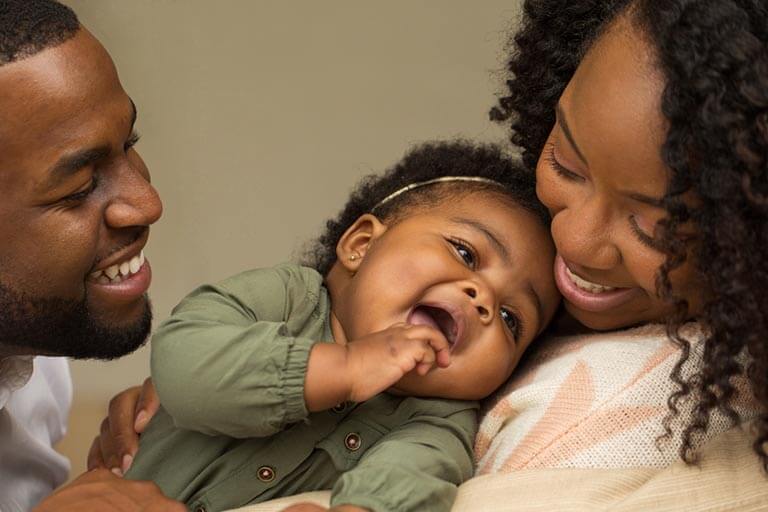Learn how to be a better parent and become the great role model your children need through the following parenting tips and advice.
Before anything else, let’s get one thing straight: there is no such thing as “Perfect Parents” the same way as there are no perfect children. It is important to take note of this concept to set your expectations when it comes to parenting.
However, just because you’re not perfect doesn’t mean you can’t be a good parent. Parenting requires dedication and hard work, thus there are certain skills that you have to master to become the best parent your kids deserve.
Part of being a good parent is making the right decisions for your family’s best interest. You want to give your children positive experiences from childhood up to their teenage years to allow them to develop into better individuals. But how do you that?
One key is to identify their needs. But as your children grow and develop, their needs and personalities change. Similarly, you have to adjust your parenting strategies at each stage of your kid’s life.
Infant (0-1)

During your kid’s first stage in life, they start developing bonds of love and trust with you and the other people around them as a part of their social and emotional development. You will be their role model when it comes to how they interact with other people so the way you cuddle, hold, and play them will be crucial.
An article in the Center for Parenting Education states that “Social scientists have shown that much of learning that occurs during childhood is acquired through observation and imitation. For most children, the most important role models are their parents and caregivers, who have a regular presence in their lives.”
Positive Parenting for Infants
Develop a closer bond with your baby through the following parenting tips appropriate for their age:
Baby talk is a must!
Infants learn how to talk by babbling and they enjoy having someone to talk back. Hearing your voice can calm them and help them with language development so try to have fun chatting with your little one.
You can sing songs, tell stories through picture books, make silly noises to make them laugh or play peek-a-boo. A report from the University of Washington states that baby talk is good for your infant as it gives your baby a bigger vocabulary.
Give them lots of your loving attention
Babies feel most cared for and secured when they are held and cuddled. It is also good to shower your babies with praise and show them constant affection.
Watch where your baby explores
Infants love exploring and are easily drawn to objects with bright colors and ones that make noise. They also tend to put things in their mouth during their third or fourth month as this is their way of getting to know the world.
Ensure that you don’t give your infants tiny toys or those with breakable parts that could lead to choking.
Get to know your baby’s personality
Some babies are fussy and easily irritated while some are cuddly and easy-going. Taking note of your baby’s personality and knowing what ticks them will help you make them feel more comfortable and a lot happier.
For example, if they are fussy, it helps to not overstimulate them and only play with your baby if he’s alert or relaxed.
Don’t forget to also take care of yourself
Caring for infants is one of the most challenging stages of parenthood. It is important not to forget to take care of yourself as well when experiencing inevitable stress. After all, it is easier to become a positive, loving parent to your baby if you feel good.
Babies thrive best when surrounded by happy and healthy people which makes self-care as a parent all the more necessary. “My best advice is that if you want to be the best possible parent that you can be, sleep enough, exercise, have some fun and enjoy yourself, too. It will make you a better parent.” Dr. Barbara Greenberg, Clinical Psychologist, said in her article on HuffPost.
Health and Safety Tips for Parents with Infants
- Avoid shaking your baby. Babies’ neck muscles are not strong enough to support their heads so shaking them may damage their brain or even cause death.
- The safest way to put your baby to sleep is at his back. This prevents SIDS or Sudden Infant Death Syndrome.
- Based on the World Health Organization, breast milk is the most important source of nutrition for your baby during their infancy. Although you can start introducing other healthy, solid food to them between the age of 6 to 12 months.
- Be patient when feeding your baby. Do not use force when encouraging them to eat and watch if they are already full.
- An active baby is a healthy baby. Allow your tiny one to get his legs and arms moving by crawling on the floor or on his playpen.
- Baby swings, strollers, and bouncer seats are helpful but do not let your baby stay in them for too long.
- Never hold hot drinks or food while carrying your baby or allow anyone to smoke near your child.
- It is important for your child’s health and safety that his vaccination is up-to-date. Consult your pediatrician to make sure that your child gets the right shots at the right time.
Toddlers (1-2)

As your child starts walking, he steps into another stage of his life which is toddlerhood. Toddlers can be a handful. This is the moment where they tend to throw tantrums as they have trouble dealing with limits, compromise, and disappointment
As a parent, you can support your kid by looking at things in his perspective. Positive parenting can be terrific for toddlerhood once you’ve learned how to tame your toddler the right way.
Positive Parenting for Toddlers (1-2)
Develop a closer bond with your toddler through the following parenting tips appropriate for their age:
Encourage your child to grow
You can encourage your child to grow and become more independent by allowing him to explore and try new things. Bringing your little one to field trips to the park or going on bus rides can also help them develop curiosity and the ability to recognize common objects.
You can also start allowing them to start feeding and dressing by themselves to encourage their growing independence.
Show them love
The best way to teach your child to behave well is by showing love, clear rules and a degree of routine. By praising them and showing constant affection, you can motivate your one or two-year-old to follow rules.
Your display of affection like hugs, kisses, and tickles should outnumber the consequences or punishments to reassure them of your love. Also, always remember to set a good example to your children because kids at this age learn by
Reduce the frequency of tantrums
It is normal for toddlers at this age to throw tantrums. To control it, explain to them how to follow rules and encourage communication to prevent frustrations on both sides. It helps to distract your child or make a game out of good behavior.
If possible, offer them a choice. Also, it’s important to also say yes from time to time so they don’t get frustrated at all times.
Don’t overload them with rules
Overloading your child with rules can overwhelm them. Instead, prioritize rules that focus on their safety and add further rules over time. Childproofing your home and eliminating temptations will help them stick to the rules you’ve set.
Implement consequences
Your toddler will most likely break the rules. To encourage your child to cooperate, show them the natural and logical consequences of their actions. For example, if they break their toy, they wouldn’t be able to play with it anymore or if they refuse to clean up their toys, you will take it away from them.
Don’t be afraid to withhold them of some privileges such as their favorite toy or anything related to why they are misbehaving but never deprive them of their needs such as meals.
When your kid is acting out, you can enforce a timeout and wait until he is calm and can listen to you so you can explain properly why his behavior was unacceptable.
Health and Safety Tips for Parents with Toddlers (1-2)
- The World Health Organization reports that drowning is the most likely cause of death for kids at this age group so ensure that you never leave them alone near water like bathtubs, pools, lakes, or the ocean.
- Breast milk is still an ideal source of nutrition for toddlers age 1 to 2. Instead of sugary drinks, give them water or milk.
- Keep your home toddler-safe by keeping appliances like irons, heaters and sharp objects like knives or scissors out of your little one’s reach. Don’t forget to plug covers on unused electrical outlets.
- Allow your toddler to be active and move continually. This is the stage when he is developing coordination and becoming strong.
- Never leave your child unattended in a car even just for a minute.
- Lock up poisonous chemicals like household or jewelry cleaners.
- It is advisable for children younger than 2 years old to not watch any screen media.
Toddlers (2-3)

Here’s what you can expect once your precious baby turned 2 to 3: they will insist on doing things on their own, show bigger feelings, difficulty sharing, waiting, taking turns and of course, temper tantrums!
This stage can be tough for parents but can also be a terrific experience for mommy, daddy, and baby! Good thing there are ways to win the heart of your toddler and make them cooperate.
Positive Parenting for Toddlers (2-3)
Develop a closer bond with your toddler through the following parenting tips appropriate for their age:
Encourage their independence
As you already know, kids at this age have a newfound sense of independence that can test and challenge you. Look at this in a new light and give your kids the opportunity to help with tasks without stepping in to do it for them. You might be surprised about what your child is capable of doing!
Set clear rules and boundaries
Manage difficult situations by acting as your kid’s guide to a better behavior. Clarify the boundaries in their life while showing empathy. Let them know that you understand how they feel by putting yourself in their shoes.
Observe and give them the words
Toddlers learn by doing things. Instead of explaining the consequences right away, try to tell them why it happened “You broke your toy because you threw it”. Since toddlers couldn’t verbalize their feelings or thoughts yet, speak for them and express their needs through words.
Instead of saying “No”, let them know what they can do
Try to reduce saying “don’t” and encourage alternative actions by telling them what they can do instead. Limit your “no” and only use them during dangerous situations. Try to turn no into a yes by saying “We can go outside after your bath” instead of “No. Don’t go out!”.
The University of Illinois Extension explains “Talk about how the child feels as you stop the harmful behavior.” For example, say, “I know you want the toy, but you can’t hit your brother. Hitting hurts.” Or say, “I know it is fun to run, but I can’t let you run in the street. A car might hit you.”
Praise them for doing the right thing
When you show your child positive attention like praises and hugs for behaving well, they are most likely to coordinate with you. Try to ignore unwanted behaviors and calmly teach your children the acceptable ways to show their emotions like anger, sadness or frustration.
Health and Safety Tips for Parents with Toddlers (2-3)
- Toddlers during this age tend to put crayons and pencils in their mouth while coloring or drawing. Teach them how it can be harmful for them.
- Teach your children to slowly chew their food to avoid choking.
- Limit television including video games screen time to 1-2 hours daily.
- It’s normal for toddlers to be picky and erratic eaters. Encourage them to try new food by offering tiny bites to taste.
- Free play should be encouraged as it keeps toddlers healthy, happy, strong and develop their motor skills.
- Carefully check your kid’s toys for any choking hazard.
- Make sure your child is getting enough sleep by keeping their bedtime including naps within 11-14 hours per 24 hours. Based on a National Sleep Foundation research, this is the recommended amount of sleep for 2 and 3-year-old toddlers
Preschoolers (3-5)

Your kid’s preschool years are also known to be their “Wonder Years”. These are the years where they take further ownership of their independence and will start to focus on other people and adults outside of the family.
They begin to become more curious about the things around them and raise you questions to understand how everything works. The way they interact with their family and the people that surround them will play an important role in how they shape their personality and how they think and move as they grow up.
Positive Parenting for Preschoolers
Develop a closer bond with your preschooler through the following parenting tips appropriate for their age:
Set family routines
Consistency is an important aspect for preschoolers. Setting up a routine for mealtimes, playtimes, and sleeping time will make life with preschoolers more manageable. It also helps set your child’s expectations.
When you stray too much from routines, your preschooler will get confused and will tend to throw a temper tantrum and act out.
Reward good behavior
Avoid focusing on your child’s negative actions. Try to focus more when your preschooler is doing something positive and praise them for it by giving them a big hug or kiss. This type of treatment can go a long way for your child. Psychologist Abraham Maslow once said, “It takes nine affirming comments to make up for each critical comment we give to our children.”
Encourage your kids to develop good values
There are a number of ways to help your kid to develop good values. You can encourage them to help with simple chores at home so they become more responsible. To help him develop great values like sharing and friendship, allow him to play with other kids.
You can hold also help them become more reasonable by providing step by step solutions to their problems when they are upset.
Use clear and “grown-up” words
When disciplining your child, it’s critical to use clear and concise words to explain the behavior that you expect from them. Don’t just say no, let your kid understand what he should be doing instead.
By using the correct words and phrases that grown-ups say, you’ll be able to help him develop good language skills.
Health and Safety Tips for Parents with Preschoolers
- Your kid is starting to spend more time outside of your home so he should start being aware of ways to stay safe. Teach them why staying out of traffic is important or why playing in the street can be dangerous for them.
- At this age, your kid can start riding bicycles or tricycles. Always have them wear a helmet and keep them away from the main streets where many vehicles pass by.
- Never leave your child unattended, especially when outdoors.
- Teach your kid how to be safe around strangers.
- Limit the amount of sugary, salty, or fatty food and beverages that your child intake. Instead, eat healthy food together and let them watch you enjoy eating fruits, vegetables and whole grains so they can learn from you.
- Based on a National Sleep Foundation research, the recommended amount of sleep (including naps) for preschoolers 3-5 years old are 10-13 hours per day.
Middle Childhood (6-8)

You’ll experience more changes during your kids’ middle years. They are more independent than before and are now able to dress by themselves, tie their shoes easily, and are more able to care for themselves.
During this phase in your youngster’s life, it is important that you let them enjoy their freedom by allowing them to go to school and make friends alone. However, you also have to remember to be a parent at a distance. This means constantly monitoring, guiding, and supporting your kids effectively.
Positive Parenting for Middle Childhood
Develop a closer bond with your kids in their middle childhood through the following parenting tips appropriate for their age:
Encourage a sense of responsibility
Communication is key when it comes to helping your child develop a sense of responsibility. You can start by asking them to help in household chores, encourage them to help other people in need, teach them how to be polite and how to think about possible consequences before acting.
Get involved with your child’s life
Once your child enters school, you will spend less than half as much time with him than you did before. You thus need to spend more time with your kid to further develop your relationship.
Find time to do things together as a family, such as going out for a movie, playing games, or attending events. Make it a habit to ask them about school, friends, and things they look forward to in the future.
Acknowledge your child’s good behavior
Always praise your child for the good things he did and support them to take on new challenges. Motivate your kid to work on solving their own problems and to join school or community groups.
Also, allow your youngster to set achievable goals for himself. They’ll learn not to rely on other people for approval when they learn to take pride in themselves.
Health and Safety Tips for Parents with School-Aged Children
- The Novak Djokovic Foundation advises parents to encourage their children to engage in sports or active play as 1 hour or more of physical activity each day is important for kids at this age.
- Teach your kids to practice eating healthy by being a role model. Prepare healthy food during family mealtimes and implement an active lifestyle.
- Teach your child safety rules when walking to school, riding a bike, and playing outside.
- Keep prescription medications and household cleaners away from your school-aged children.
- Always supervise children while they are swimming near water.
- Instruct and remind your child to never go someplace with a stranger.
Middle Childhood (9-11)

At this phase, your child will start to see the world in a new and interesting way. Along with their growing independence, this is a critical time for them to develop their sense of responsibility.
They will start to experience stronger peer pressure so teaching your kids to form healthy friendships will be more important during this age. Another big change that they will go through during this period is puberty as they start to become more aware of their body.
Positive Parenting for Middle Childhood (9-11)
Develop a closer bond with your kids in their middle childhood through the following parenting tips appropriate for their age:
Teach him how to make healthy decisions
Help your kids learn how to develop his own sense of right and wrong. Discuss about what they should do when their friends try to pressure them to do risky things such as drinking alcohol, smoking, or participating in dangerous dares.
Be involved with your child’s life
You can fetch your child from school, meet their friends and teachers, and spend time with them after school so you can talk about their friends, their problems, and their accomplishments. Show your child love and affection and as much as possible, do things together.
As per the Ministry of Education in Guyana, “ When students feel supported at home and school, they develop more positive attitudes about school, have more self-confidence, and place a higher priority on academic achievement. Children of involved parents are more likely to feel that they’re accepted, included, and respected and at school.”
Build their self-confidence and sense of responsibility
By encouraging your child to think about the skills and abilities he would like to have and
how he can develop them, you can teach your child how to set his own goals. You can also develop your child’s sense of responsibility by assigning them household tasks. It is also important to teach them how to save and spend money wisely.
Encourage them to participate in school clubs or community organizations to develop their self-confidence. As he gets to be surrounded by more people, it is also crucial to teach him the importance of respectfulness.
Health and Safety Tips for Parents with School-Aged Children (9-11)
- Whenever your child is going out without you, make sure that a responsible adult will be present. Ensure as well that he will be reachable at all times. Know all of the right information by asking him when he will call you, where you can find him and what time you expect him home.
- There will be instances when your child will be home alone. Set clear rules and guidelines on what he should and should not do when left alone at your house.
- Prepare healthy meals for your children and teach them how to choose nutritious foods such as fruits and vegetables. Don’t allow them to eat plenty of foods that are high in sugar and cholesterol.
- Limit the use of video games, television and mobile phones to 1-2 hours only in a day.
- Encourage active play and let your kids be involved in enjoyable physical activities that are appropriate for their age.
Young Teens (12-14)

Your child is growing so it’s time for your parenting skills to keep up as well. It can be a period of conflict between a parent and a child as your tween become more independent with their own personality and interests, make more of their own choices about friends and school, and be influenced by their peer groups.
Worry not, though, since your child’s teen years can still be rewarding for you as a parent. It is possible to see your child blossom and transform wonderfully before your eyes when you give them respect, offer appropriate freedom, and maintain strong communication.
Positive Parenting for Young Teens
Develop a closer bond with your young teens through the following parenting tips appropriate for their age:
Stay Connected
Make sure that the communication between you and your child is strong and don’t wait until there’s repair work needed to be done to fix your relationship. Make the most out of dinner time when trying to stay in touch with them.
Sadly, most tweens and teens believe that there are things that they can’t talk about with their parents. They fear that they won’t listen, won’t understand, or will over-react. Be the kind of parent whose teenage kids will talk to them, and even ask their advice. The key is to listen, empathize, and keep advice to a minimum.
Show interest in your teen’s life
Meet and get to know your child’s friends and frequently ask them about school. Learn to respect your child’s opinions and never take for granted their thoughts and feelings. They will appreciate knowing that you’re listening to them and are involved in their lives.
Help your teen develop good judgment
You can help your teen develop good judgment by encouraging him to make his own healthy decisions. Helping him navigate every obstacle in his life wouldn’t be good for you child. This is the perfect time to teach him how to use his own judgment.
Teaching him how to reflect will also help your child develop good judgment. Offer him the opportunity to think through the possible consequences of various actions before he decides to make them.
Start the sensitive conversation
The right way to talk about sensitive topics like drugs, drinking, smoking, and sex is by being honest and direct. It is best to start these conversations early on in their lives and not wait until they reach a new level of understanding and temptations.
According to Palo Alto Medical Foundation, teens who talk to their parents about difficult issues such as alcohol, drugs and other risks, make safer choices.
Health and Safety Tips for Parents with Young Teens
- Injuries inflicted through sports and other physical activities are common. Always remind your kids to wear a helmet when riding a bicycle, motorcycle, skateboard, snowmobile, or all-terrain vehicles.
- Communicate clearly the rules and guidelines that your teen should follow when he is home alone. Talk about how they can handle dangerous situations and the importance of completing household tasks or schoolwork.
- Encourage your teen to be a part of a peer group who will not pressure her to do unhealthy decisions.
- Ask your teens about what they think about the dangers of drugs, drinking, smoking and participating in risky sexual activity. Answer honestly and directly the questions that they may have regarding these subjects.
- Put importance on meal time and make it a habit to eat together to help them make healthy choices on what they eat.
Teenagers (15-17)

Your child’s teen years is a period of intense physical, emotional, and intellectual growth. You will notice that they will slowly break away from you during this age. Don’t fret as this is normal.
Although it might be difficult for you as a parent, this emotional separation will allow your child to grow up to become a well-adjusted adult. Parenting them may be challenging, but your teenage child still needs you as they deal with raging hormones, schoolwork and peer and media pressure.
Based on a survey conducted during the 2013 Stress in America, a significant number of American teens report experiencing stress at unhealthy levels, appear uncertain in their stress management techniques and experience symptoms of stress in numbers that mirror adults’ experiences.
Positive Parenting for Teenagers
Develop a closer bond with your teenage child through the following parenting tips appropriate for their age:
Value their privacy
Your teen will have a lot of things to sort out on their own. Respect their need for privacy and try to manage your emotions. Do not take it personally when they chose not to talk to you. Allow your child to establish their own identity. It is essential to give them freedom to help them find their own place in the world.
Listen to them
In most cases, teens feel as if they’re not given enough chance to make their case. They want parents who will understand them, love them, and appreciate them no matter what. Keep an open ear and show them that their ideas and opinions matter.
If you want your child to listen to you, you have to make the effort to listen to them as well. Respect their opinion and do not downplay their concerns.
Encourage them to make good decisions
You can help your teenager make good decisions by creating opportunities for them to use his own judgment while showing them that they can depend on you for advice and support. A conversation about what to do during difficult or uncomfortable situation is also important.
These conversations can include peer pressure about sex, using drugs, or drunk driving. If your teen is working, let him understand the importance of responsibilities, respecting other people and expectations.
Health and Safety Tips for Parents with Teenagers
- Remind your teenage kids about the dangers of driving and how to stay safe while on the road.
- Teenagers are prone to depression and anxiety. Pay attention to your child’s behavior and look out for warning signs. Talk to them about suicide and make them feel that they can open up about anything to you.
- Encourage good self-care by such as getting enough sleep, participating in physical activities, eating healthy and having balanced meals.
- Get to know your kids’ friends and remind them of the importance of choosing friends wisely.
- Mealtime with teens are important. Teens who regularly eat meals with their families are more likely to get better grades and are less likely to smoke, drink, use drugs, get into fights, become suicidal, or engage in sexual activity.
Final Thoughts
Life as a parent is definitely not a walk in the park. Everyone wants a perfect parent-child relationship but the thing is, there are no perfect parents, perfect children, and no perfect families.
The most ideal family is the one that lives in the embrace of a great love, where everyone thrives. The thing that matters most is that you create a nurturing environment that will allow your children to develop into confident, independent, and caring adults.
Remember that no matter how old your children get, your work is never done. As long as you make you feel your children loved and valued while teaching them the consequences of their actions, you’re well on your way to becoming a good parent.

 Infant
Infant Toddler
Toddler Toddlers
Toddlers Preschoolers
Preschoolers Middle Childhood
Middle Childhood Middle Childhood
Middle Childhood Young-Teens
Young-Teens Teenagers
Teenagers
